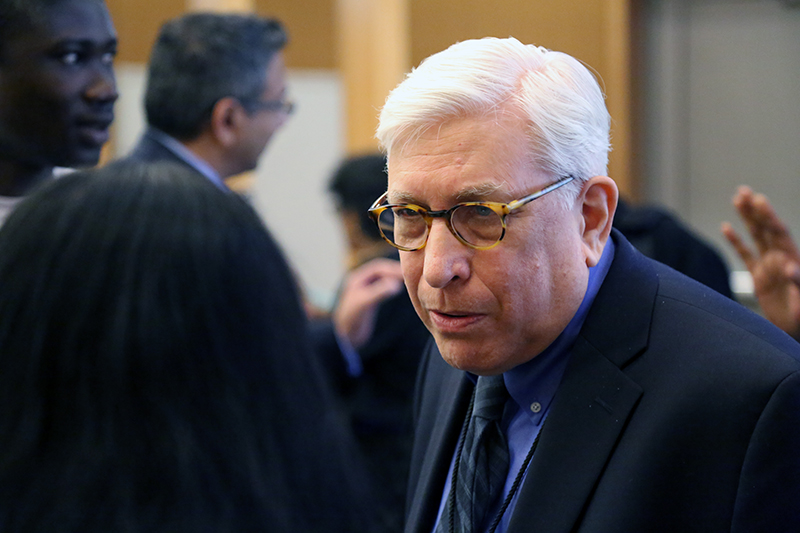
GDS Director Laurence Simon talks with conference participants
The Center for Global Development and Sustainability (GDS) is hosting the second annual Conference on Caste, Inequality and Economic Growth in South Asia from April 29 through May 1 on the Brandeis campus. During the conference, international scholars, policymakers, practitioners and students will talk about these pressing issues in a series of presentations and social events.
The conference is part of GDS’ program on social exclusion. The Heller Communications team talked with the center’s director, Laurence R. Simon, and faculty member Rajesh Sampath about the conference and GDS’ larger focus on issues of social exclusion.
Heller Communications: This is your second annual conference on caste. What’s the main concentration this year?
Center for Global Development and Sustainability: We decided to focus on issues of growth and modernization and try to understand why, with the benefits of development and globalization, we’re seeing conservative political reactions that exacerbate caste tensions and inequality. Many people are disturbed by the fact that there are caste tensions and discrimination in a relatively peaceful, secular democracy where religious coexistence is respected and promoted.
We think that the focus on caste in India has importance for the study of social exclusion in other contexts—for example race in America. Economic growth and development may lead to greater civil and political freedoms for minority groups, but underlying forces of culture and religious traditions, in so far as they shape legacies of oppression, may also clash with the idea of individual human rights when some groups continue to dominant and exclude others.
HC: The Center for Global Development and Sustainability has taken a leadership role among American universities when it comes to examining social exclusion in other countries. Why do you think this topic is not more of a concern by the American academy?
GDS: We wouldn't say that we’re taking a leadership role. What we are trying to pioneer is the comparative study of social exclusion where we can convene different policymakers, scholars, and groups from different social, cultural and national contexts to study the various modalities of social exclusion. For example, there is a lot to say about institutional racism, structural violence and inequality and the Black Lives Movement in America with the Dalit struggles for liberation and the anti-caste movements in India (Rajesh Sampath wrote about this connection for The Conversation). They are different contexts, but they can learn from each other’s histories and strategies for liberation.
HC: After the conference concludes, what's next for the center on issues of caste and social exclusion?
GDS: We may consider hosting another conference next year on a different set of themes, but broadening the scope and length. We tripled the size of this year's conference from last year's symposium. We're hoping our efforts will lead to university collaborations not just here in North America but globally. We also want to publish an anthology of papers by the keynotes and others from this year's conference if they are interested in doing so.
